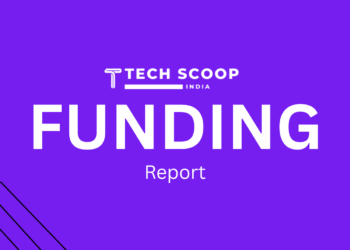India’s tech startup ecosystem continues to demonstrate resilience despite a cautious global investment climate. According to recent data, the week of July 14–19, 2025, saw Indian startups raise approximately $97.45 million across 26 deals, reflecting a modest but steady flow of capital. While funding volumes are lower compared to previous years, the focus on sustainable growth, strategic sectors, and larger deal sizes signals a maturing market. Here’s a comprehensive look at the latest trends in India’s startup tech funding landscape for this week, based on insights from industry reports and posts on X.
Funding Overview: A Steady but Selective Market
Indian startups raised $97.45 million this week, slightly up from the $95.01 million secured the previous week, according to TheKredible. The week included 26 deals, with five growth-stage and 10 early-stage rounds, while two startups kept their funding undisclosed. This marks a significant drop from the previous week’s $290.28 million across 26 deals, highlighting a trend of fewer but more selective investments.The broader context shows a challenging funding environment. In the first half of 2025 (H1), Indian tech startups raised $4.8 billion across 470 deals, a 25% decline from $6.4 billion in H1 2024, per Tracxn’s India Tech Semi-Annual Funding Report. Despite this, India retains its position as the third-largest tech startup funding ecosystem globally, trailing only the U.S. and the U.K. The decline reflects a cautious investor approach, with only five funding rounds exceeding $100 million in H1 2025, compared to nine in H2 2024.
Key Sectors Driving Investment
The funding landscape this week was dominated by sectors addressing structural challenges and aligning with national priorities. Notable sectors include:
- B2B Commerce, Healthtech, and Fintech: Posts on X highlight strong investor interest in these areas, with deals in functional foods, payments, and deeptech. For instance, healthtech and fintech startups are leveraging AI and digital infrastructure to attract capital.
- Climate Tech, Travel, and Aviation Tech: Emerging sectors like climate tech and aviation tech saw funding rounds, reflecting a growing focus on sustainability and innovation in mobility. Retail apparel and chemical manufacturing also secured investments, indicating sectoral diversity.
- Transportation and Logistics Tech: This sector has shown resilience, raising $1.6 billion in H1 2025, a 104% increase from H2 2024, driven by large deals like Erisha E Mobility’s $1 billion Series D round and GreenLine’s $275 million Series A.
- Retail and Enterprise Applications: Retail secured $1.2 billion in H1 2025, while enterprise applications raised $1.1 billion, signaling investor confidence in scalable, tech-driven solutions.
Notable Deals and Trends
This week’s standout deal was IPO-bound proptech firm Smartworks, which raised $20 million in a pre-IPO round, followed by education-focused NBFC Varthana. Growth and late-stage funding totaled $72.9 million, underscoring a preference for larger, more mature ventures.Venture debt is also gaining traction, with over 130 deals worth Rs 2,100 crore in H1 2025. Startups are increasingly opting for debt financing to extend runways without diluting equity, reflecting a strategic shift toward valuation preservation.
The broader H1 2025 data reveals a focus on quality over quantity. Only two unicorns emerged, compared to three in H1 2024, and IPO activity slowed, with 12 startups going public compared to 21 in H1 2024. However, mergers and acquisitions (M&As) surged, with 73 deals in H1 2025, up from 54 the previous year, indicating consolidation as a growth strategy.
Regional and Investor Dynamics
Bengaluru and Delhi remain dominant hubs, accounting for 26% and 25% of total funding in H1 2025, respectively. Investors like LetsVenture, AngelList, and Accel were the most active, with Accel leading 30 deals. Venture Catalysts, 100X.VC, and Peak XV Partners also played significant roles across seed, early, and late-stage rounds.
Challenges: A Selective Funding Climate
The funding landscape is marked by caution, driven by global macroeconomic uncertainties and a focus on profitability. Investors are prioritizing startups with strong fundamentals, sustainable models, and clear paths to IPOs. Posts on X note that venture capital funds are down 34% globally, creating a “founder’s market” where only those adept at navigating timing and optics succeed.The decline in funding rounds (32% fewer in 2024 compared to 2023) and a 25% drop in H1 2025 funding reflect this selectivity. Late-stage funding, while robust at $2.7 billion in H1 2025, saw a double-digit contraction, and seed-stage funding fell to $452 million
Outlook for 2025
Despite the funding dip, optimism persists. Inc42 projects total startup funding for 2025 to reach $14–15 billion, with $8–8.8 billion expected in H2, driven by investor enthusiasm for AI, defence tech, and sustainability-focused startups. The surge in pre-IPO rounds and specialized funds signals growing confidence in public markets, with companies like PhysicsWallah, Ather Energy, and OYO preparing for listings.
For founders, the focus is shifting from chasing valuations to building resilient businesses. Sectors like AI, climate tech, and logistics are expected to dominate H2 2025, while Tier-2 cities like Jaipur and Coimbatore are emerging as new entrepreneurial hubs.
Conclusion
India’s tech startup ecosystem in July 2025 reflects a cautious yet dynamic market. While funding volumes are down, the emphasis on sustainable growth, strategic sectors, and debt financing highlights a maturing ecosystem. As investors prioritize quality and founders adapt to a selective landscape, India continues to solidify its position as a global innovation hub.Stay tuned to TechScoopIndia for the latest updates on India’s startup funding trends.


















